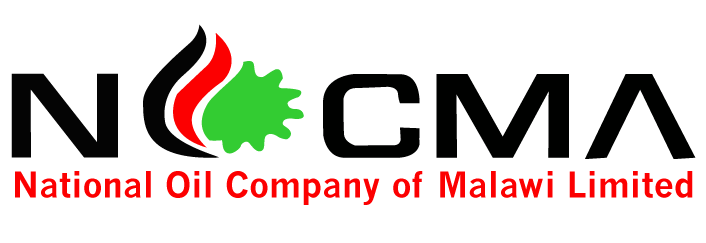Company Background
We are the National Oil Company of Malawi (NOCMA) Limited, wholly owned by the Government of Malawi.
Formed in line with the National Energy Policy of January 2003, NOCMA was registered on 14th December 2010 under the companies Act of 1984.
With our head office in Kang’ombe House in City Centre in Malawi’s capital Lilongwe, we have an office at Mwanza border post and have operations through an agent at Songwe border to handle incoming fuel tankers.
Background
We are the National Oil Company of Malawi (NOCMA) Limited, wholly owned by the Government of Malawi. Formed in line with the National Energy Policy of January 2003, NOCMA was registered on 14th December 2010 under the companies Act of 1984.
With our head office in Kang`ombe House in City Center in Malawi’s capital Lilongwe, we have an office at Mwanza border post and have operations through an agent at Songwe border to handle incoming fuel tankers
In the early 1990’s, liquid fuel importation was in the hands of the private sector.Oil imports were facilitated on behalf of Oil Marketing Companies(OMCs) through the Industry Petroleum Supply Unit (IPSU).
The floatation of the Malawi Kwatcha in 1994 resulted in heavy exchange losses for the oil Industry. Consequently, IPSU handed over fuel importation to Government, which diected the Petroleum Control Commission (PCC) ,established by an Act of Parliament, combine both regulation and importation of liquid fuel into the country.
In 1999, PCC stopped importaion of fuel because of concerns raised by multilateral partners on governance issues such as combining the role of a regulator and importer of fuel for the country. The role of importatation reverted to the private sector through Petroleum Importers Limited (PIL), a consortium of Oil Marketing Companies (OMCs). However, the oil companies do not have adequate storage capacity and do not seem to have the incentive to invests significantly in this area. In the absence of strategic fuel reserves, this arrangement does not provide for fuel stocks to last for reasonably longer period, leaving the country very vulnerable to supply chain shocks
In 2003, the Government of Malawi, with financial support from the World Bank and the United Nations Development Program (UNDP), developed the National Energy Policy for Malawi. The Energy Policy identified various challenges faced by the oil industry in Malawi. These included unreliability of supplies, lack of competition in the oil industry and the absence of proper institutional arrangements to champion upstream activities in oil and gas for country.
The policy, therefore, recommended the establishment of a national oil company through an Act of Parliament. However, the company was registered under the Companies Act of 1984.
As a government-owned company, we are mandated to manage the country’s Stratergic Fuel Reserve Facilities (SFRs), promote competition in the oil and gas industry and to promote oil and gas exploration activities to ensure stability and security of supply of liquid fuel and gas products.
Construction of Strategic Fuel Reserves
The fuel storage facilities have a combined capacity of sixty million litres of fuel, representing more than 45 days of fuel cover for the country at the current estimated national daily consumption level of between one million and five hundred thousand litres.
President Peter Mutharika officially commissioned the Strategic Fuel Reserves on 6thDecember, 2017 at a ceremony that was held in Lilongwe.
About the depots
Name | Location | Storage Capacity |
Lilongwe | Kanengo, Lilongwe | 25 million litres (18 million litres diesel, 7 million litres petrol) |
Blantyre | Matindi, Blantyre | 25 million litres (18 million litres diesel, 7 million litres petrol) |
Mzuzu | Sonda, Mzuzu | 10 million litres (5 million litres diesel, 5 million litres petrol |
Chilumba | Chilumba | 537000 litres |
Governance
Chaired by the Chief Secretary to the Government, the Board of Directors comprises representatives from Government Ministries, Civil Society and the private sector.

